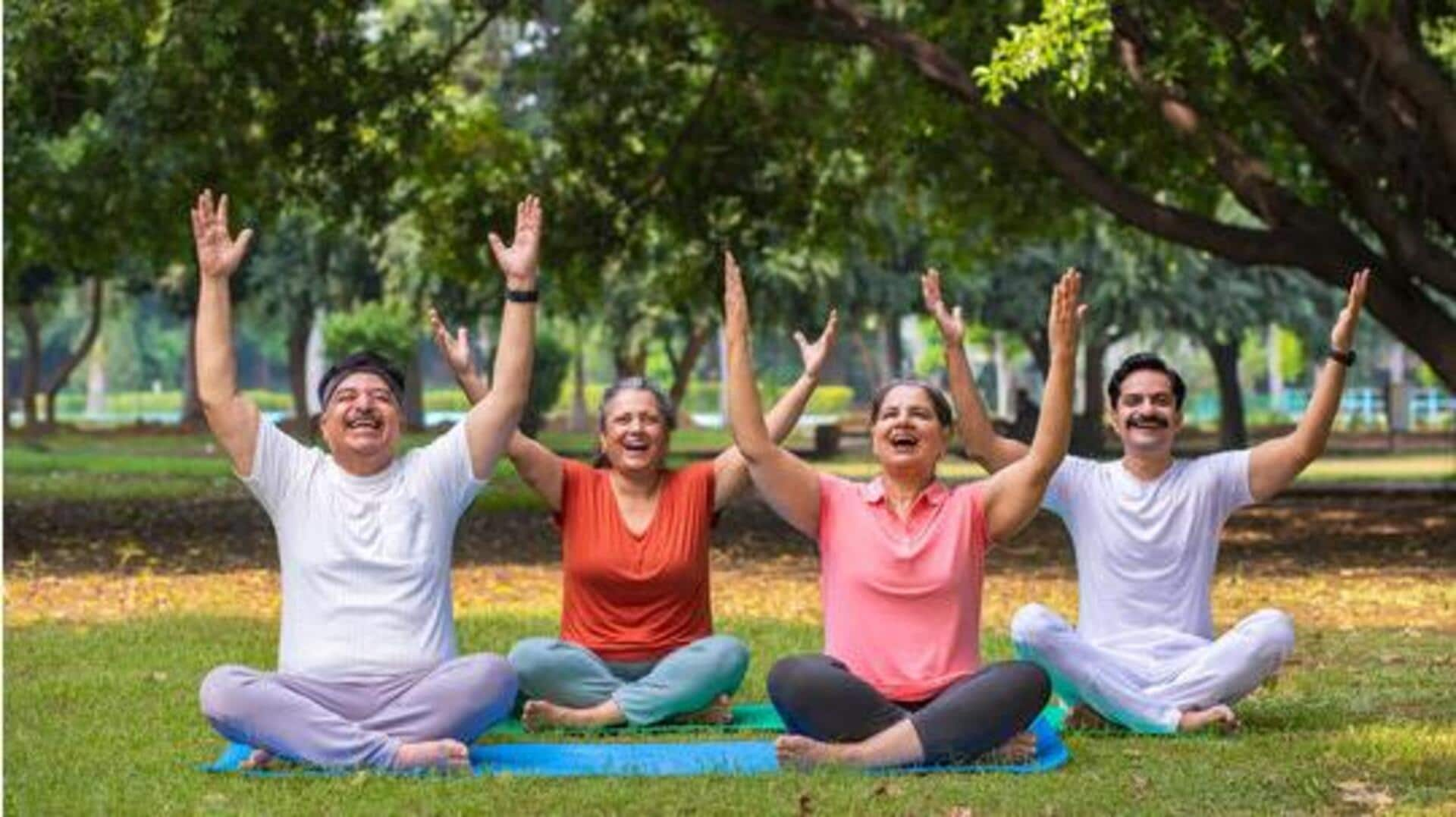
5 laughter exercises to improve your mood
What's the story
Laughter exercises are a simple yet effective way to boost daily wellness. These exercises can be practiced by anyone, regardless of age or fitness level, and don't require any special equipment. Engaging in laughter exercises can help you reduce stress, improve mood and even enhance physical health. By incorporating these activities into your routine, you can experience the benefits of laughter without needing a reason to laugh.
Breathing exercise
Deep breathing with laughter
Start by taking a deep breath through your nose and fill your lungs completely. Hold the breath for a few seconds before exhaling slowly as you laugh gently. This exercise combines deep breathing with laughter to increase oxygen flow and promote relaxation. Practicing this exercise for five minutes every day will help reduce stress levels and improve your overall well-being.
Quiet laughing
Silent laughter technique
In this exercise, you laugh silently without making any sound. Start by closing your eyes and picturing something funny or joyful. As you break into a wide smile, let out silent laughs while concentrating on the feeling of joy inside you. This technique is perfect for scenarios where loud laughter wouldn't be appropriate but you still want to enjoy the perks of laughter.
Yoga integration
Laughter yoga poses
Laughter yoga combines traditional yoga poses with intentional laughter exercises. You can start with simple poses like child's pose or cat-cow stretch while incorporating bouts of gentle laughter throughout each pose. This practice helps release tension in muscles and joints, while promoting mental clarity and emotional balance.
Social interaction
Group laughter sessions
Gather your friends/family members for group laughter sessions where everyone joins in on different laughing activities together. These include clapping rhythms followed by bursts of spontaneous giggles or sharing funny stories. These activities induce collective chuckles among participants, strengthening social bonds. They also uplift mood by shared joyous moments.
Self-reflection
Mirror laughing exercise
Stand in front of a mirror, smile at yourself and then start laughing naturally. Take a look at how it feels to see your happy reflection. Continue till genuine amusement takes over. This allows self-compassion to grow and confidence to increase from witnessing your own joyful expression. Practiced regularly, it becomes a habit that positively contributes to personal growth.